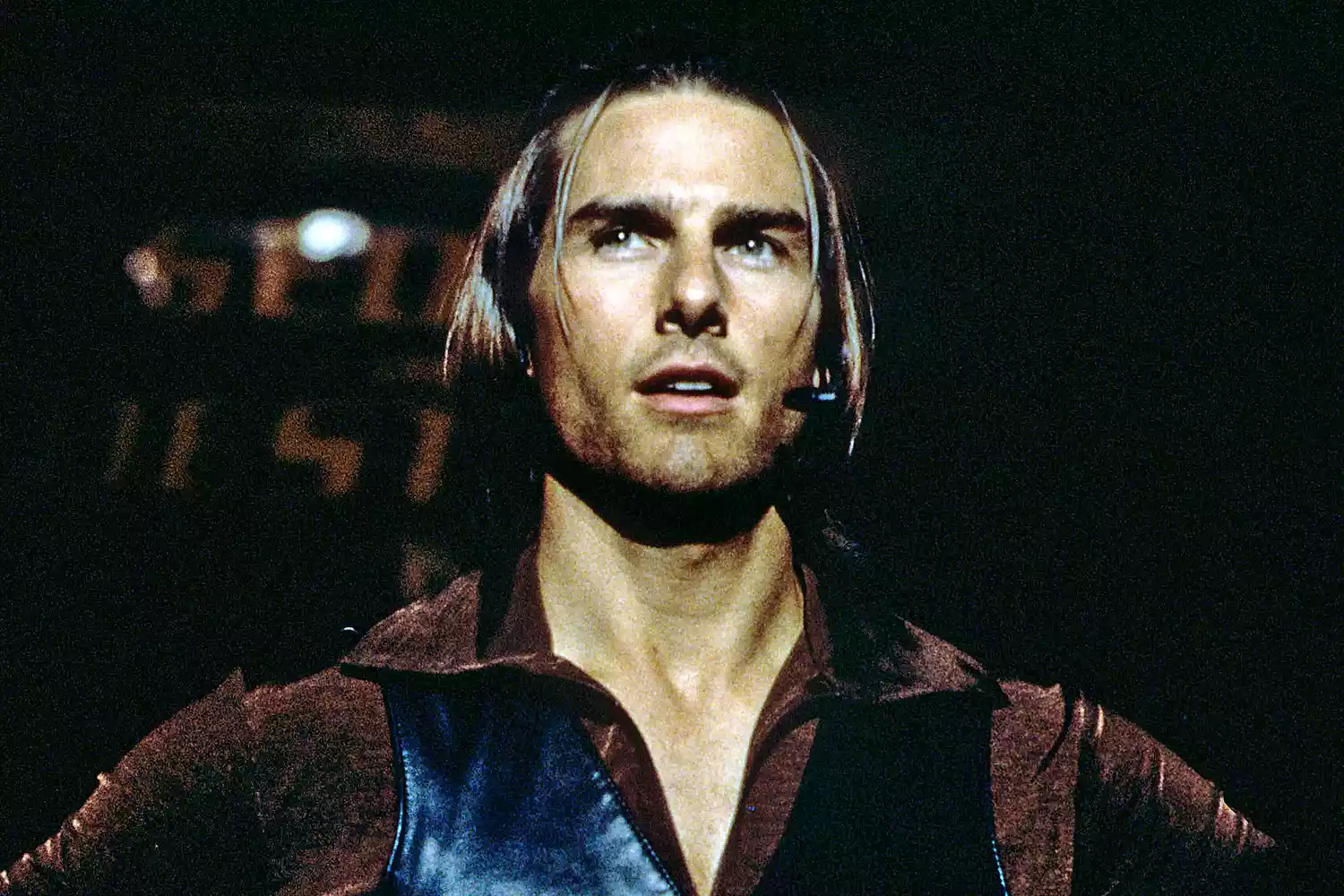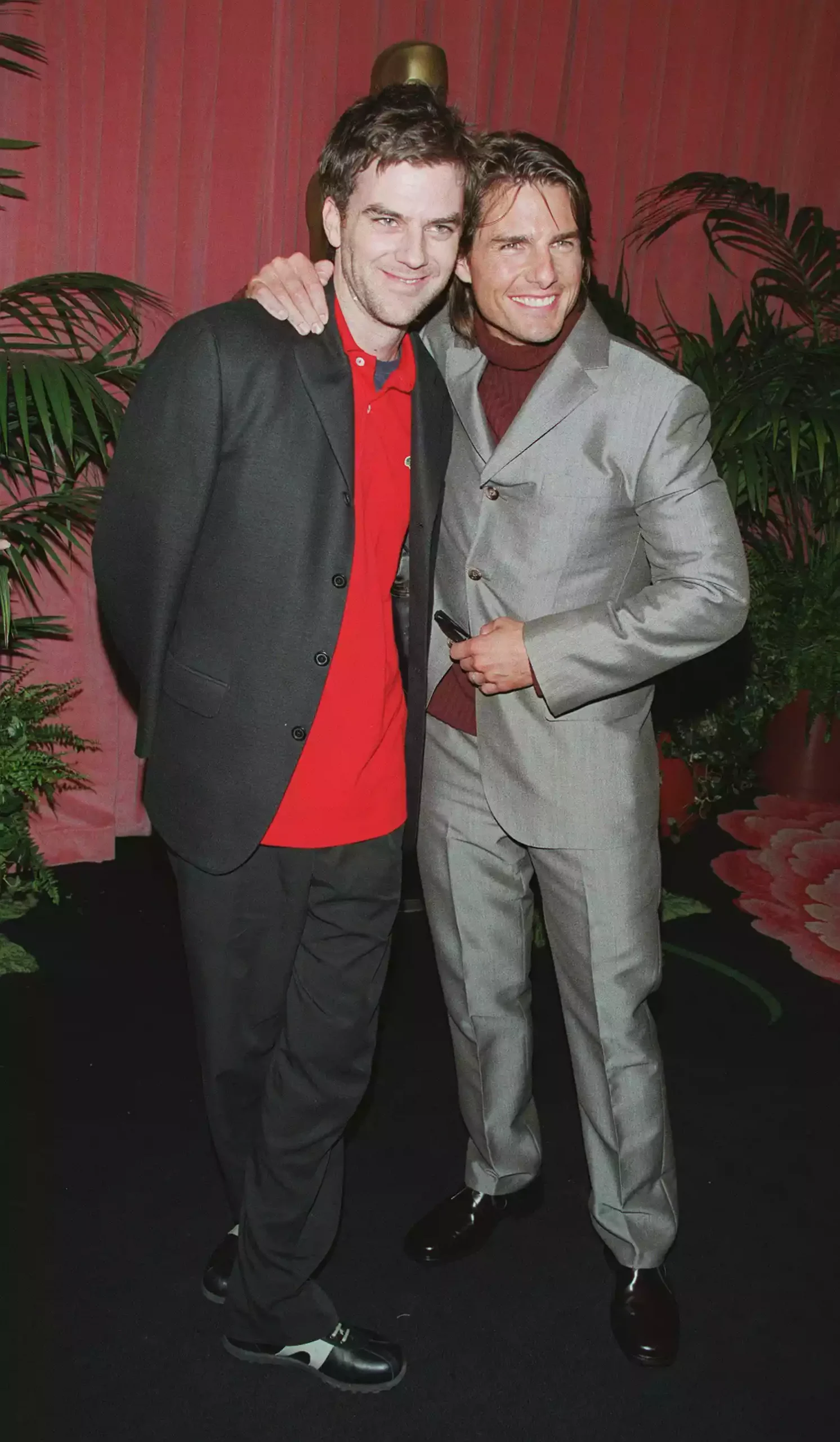In a career-spanning interview at the British Film Institute, Tom Cruise revisited one of the boldest decisions of his acting journey — rewriting and performing the infamous opening monologue for his Magnolia character, Frank T.J. Mackey. The gamble not only stunned director Paul Thomas Anderson but also marked a turning point in Cruise’s legacy, proving that sometimes, raw instinct trumps a script.
When Instinct Meets Opportunity: A Gamble in the Making
Before Magnolia became a cinematic cult favorite, it was an unpolished script in search of clarity. The now-iconic character Frank T.J. Mackey — a brazen, alpha-male guru selling toxic masculinity in velvet shirts — was initially little more than a paragraph on paper. Tom Cruise, however, saw something more. “There was a couple of sentences, and I remember I was worried,” Cruise admitted during his BFI retrospective. Rather than waiting for rewrites, he made a move few actors would dare: he offered to write it himself.

Cruise invited director Paul Thomas Anderson to his home, not just to discuss the character, but to show him. He didn’t come empty-handed — the lighting was set, music selected, speakers positioned. Cruise had staged a mini-theater in his own screening room. “Let me just show you what I’m gonna do,” he told Anderson. The result? A jaw-dropped director and a monologue that would define the film’s pulse.
The bold performance — complete with sleazy bravado, sleeker costuming, and a script Cruise had largely crafted — shocked Anderson. “He’s like, ‘What the f—?’” Cruise recalled, laughing. But the trust was sealed. Cruise had embodied Mackey before the cameras ever rolled.
Building Frank T.J. Mackey: From Threads to Thrills
One of the first disagreements between Cruise and Anderson wasn’t about words — it was about wardrobe. The director envisioned Mackey in IZOD shirts and khakis, a conservative silhouette. Cruise disagreed: “I don’t think that’s this guy.” Instead, he imagined Mackey as a symbol of late-’90s male entitlement — flashy, loud, and proud. The final look: slicked hair, a brown velvet button-up, and a leather vest.

But Mackey wasn’t just a look. Cruise built him from inside out — researching subcultures, testing rhythms, designing gestures. “I just had a list of things… I do research on things… but I just create characters like that,” he said. The monologue — crude, outrageous, and magnetic — became a vehicle for Cruise to explore charisma at its most dangerous.
Each day on set, Cruise and Anderson collaborated like jazz musicians, improvising lines, editing ideas, pushing limits. What began as one written piece evolved into a series of monologues that formed Mackey’s doctrine — not just what he said, but how he said it. It was Cruise in full control of character architecture.
Awards, Aftershocks, and the Long Game of Legacy
The impact of Cruise’s gamble wasn’t immediate — Magnolia walked away empty-handed from the 2000 Oscars. But in hindsight, it was a career-defining move. Cruise was the only actor from the ensemble nominated for an Academy Award. Critics praised his performance as his boldest, most complex to date.
More than two decades later, Magnolia continues to rise in retrospective rankings. Entertainment Weekly placed it just behind Born on the Fourth of July in their list of Cruise’s all-time best performances. It was also a high point for Anderson, who earned a Best Original Screenplay nomination.
Yet beyond accolades, Magnolia marked something deeper: Cruise’s transition from movie star to character actor. In trusting his instincts, he shifted the perception of his craft — not just an action hero or romantic lead, but a creative force capable of building roles from scratch.
A Legacy Lit from Within: The Art of Creative Risk
For many, Cruise’s Magnolia story is more than behind-the-scenes trivia — it’s a lesson in artistic conviction. He wasn’t trying to overpower the director’s vision but to amplify it through lived experience and intuitive storytelling. “You show them, and then it evolves from there,” Cruise said, summing up the organic flow between actor and script.
That trust, that instinct, is now part of Cruise’s legend. From Top Gun to Magnolia, he’s repeatedly taken ownership of the roles he plays. And while his daredevil stunts often dominate headlines, it’s moments like this — alone in a screening room, performing to a single viewer — that show the true risk-taker behind the scenes.
In the end, Cruise didn’t just play Frank T.J. Mackey. He built him — brick by brick, beat by beat — until every word, every inflection, became unforgettable. It wasn’t the role he was handed. It was the one he claimed.





